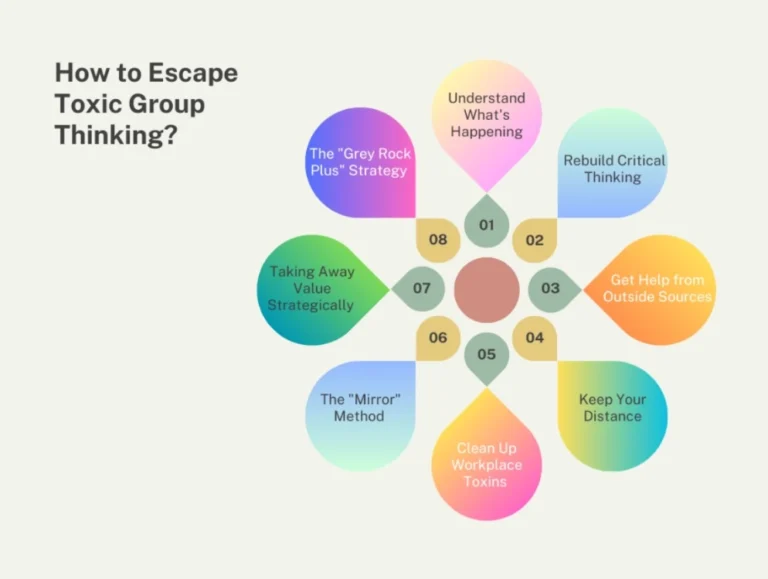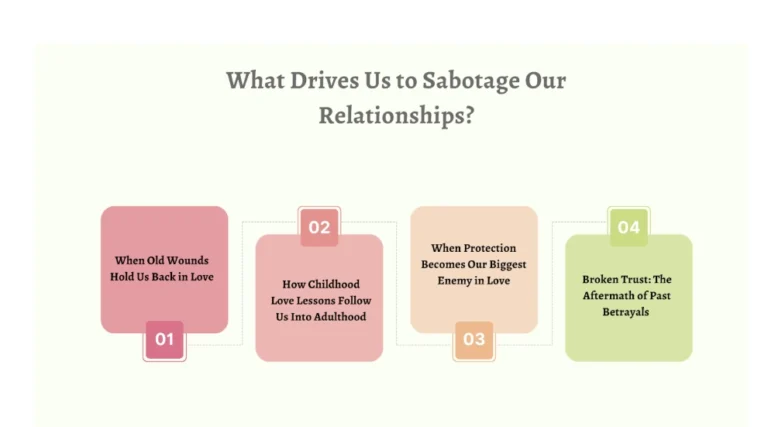You know how bad it is when you’re just chatting with someone, and all of a sudden, you start fighting? Of course, we’ve all been there.
You might be talking about plans for the weekend one minute, and then someone gets angry, and you have no idea what happened. Luckily, things don’t have to be this way. Don’t let drama and stress ruin your talks.
Use these 10 easy tips instead. Plus, people will want to talk to you more since you know how to be nice even when you disagree with them.
- Listen Before You Leap
- Use “I” Statements Instead of “You” Accusations
- The Compliment Sandwich Technique
- Find Common Ground First
- Ask Questions Instead of Making Assumptions
1. Listen Before You Speak
We’re just nodding along, but we’re already planning the right answer in our minds. The other person is still talking, but we can’t hear half of what they’re saying.
According to research, people stop talking when they think you’re not paying attention. Jones and Lucas found that young people need to really feel like they hear them before they will tell you anything real.
That makes sense, right? Who wants to be honest with someone who seems to be waiting to speak?
- The fix is simple: Just listen. That’s it. No planning your comeback, no thinking about similar stories you want to share. Just focus on their words.
To strengthen your listening skills further, try these 8 exercises to improve communication with your partner or loved ones.
Restaurant example:
- Your friend says, “This new job is stressing me out so much, my boss keeps changing the rules, and I never know what’s expected of me anymore.”
- What you’re thinking: “Oh, they should totally document everything in writing so they have proof when the boss changes things again. I should tell them about that app I use for…”
- What your friend hears in your face: You’re not really listening.
- Result: They stop sharing and change the subject.
Same situation, but done right:
- Friend: “This new job is stressing me out so much, my boss keeps changing the rules, and I never know what’s expected of me anymore.”
- You: “That sounds exhausting. What’s the worst part about not knowing what to expect?”
- Friend: Opens up more because they actually feel heard.
2. Use “I” Statements Instead of “You” Accusations
The moment you say “You always…” the other person’s brain hits the panic button. What they say after those words doesn’t matter because they’re already on defense. This is one of the worst things you can say in a daily chat if you want to avoid arguments.
What happens in your brain when someone accuses you?
The “fight or flight” response starts right away. often fueled by an inner critical voice that escalates tension. Want to quiet that critical voice and trust your own path? Don’t Be a Crab is the guide your brain has been waiting for. Bergstra and Düwell’s study shows that charges have what they call an “explosive effect,” which means that people either shut down totally or come back swinging. Neither choice is good for anyone.
The problem with “You” statements:
- They sound like attacks
- People get defensive immediately
- About 80% of fights start this way
- Nobody listens when they feel blamed
Why “I feel…” changes everything?
You’re sharing your experience, not attacking their character. People can’t argue with your feelings because they belong to you.
Roommate kitchen example:
❌ Wrong way: “You never clean up! You always leave dishes everywhere, and you’re so messy!”
- Result: Roommate gets mad, argues back, nothing gets solved.
✅ Right way: “I feel stressed when dishes pile up because I cook most nights. Could we figure out a system?”
- Result: Roommate actually listens and works with you.
Quick formula that works:
- Start with “I feel…” or “I notice…”
- Describe the situation, not their personality
- Ask for what you need
3. The “Same Team” Reminder
Your brain goes into fight mode as soon as it’s “me against you.” Koudenburg’s research showed that arguments get 3 times more heated when people think of themselves as opponents instead of partners. However, no one can solve the problem.
Mentally, you can’t think straight when you feel attacked. On the other hand, studies show that when people feel like they’re working together, they solve problems better and everyone is happy.
- The simple fix that works every time: Remind everyone you’re on the same side before getting into the problem.
What teammates vs. opponents sounds like:
Opponent mode (the disaster):
- “You’re wrong about the budget.”
- “That’s a terrible idea.”
- “You never listen to my suggestions.”
Teammate mode (the magic):
- “We both want this project to succeed, so let’s figure out the budget together.”
- “Our goal is the same here – what if we tried a different approach?”
- “We’re both trying to make this work, right?”
4. The Compliment Sandwich Technique
Sometimes you need to tell someone something without starting a war. You can use the compliment sandwich by starting with a nice comment, followed by a positive statement. Hooks and Pett’s research shows that this method makes people 70% more likely to listen to your advice instead of defending themselves.
In fact, you relax when someone starts by complimenting you, and you’ll be better prepared to handle the comments when they come. Finally, a happy finish makes everyone feel good about the whole thing.
The basic recipe:
- Start with something genuine and positive
- Give your real feedback in the middle
- End with encouragement or another positive
Coworker presentation example:
❌ Wrong way: “Your presentation was way too long and boring. You need to cut half of it.”
✅ Compliment sandwich way: “I really liked how you explained the data, and that was super clear. The timing ran a bit long, though, so maybe we could trim some sections? Your research is solid, and I think with better pacing, it’ll be even more powerful.”
Quick tips to make it work:
- Make sure your compliments are real – fake praise makes everything worse
- Be specific about what needs fixing
- Keep the whole thing short and sweet
5. Avoid Absolute Words
Don’t use words like “always,” “never,” and “everyone” because they stop the talk. Researchers Al-Mosaiwi and Johnstone reported that people who use absolute words are three times more likely to make others wary and shut down.
Studies reveal that using absolute words makes arguments 70% more heated than they need to be. Besides that, most of the time they’re not even true. How often does someone really “always” or “never” do something?
Also, Berger’s study on speech patterns proves that specific examples work much better than generalizations. Getting rid of the absolutes makes talks more about working together to solve problems than about showing who is right.
What Happens When You Use Absolute Words?
Your brain believes you are being overly emotional or unfair. The other person will stop hearing the real message and start protecting themselves when they hear things like “You always do this” or “You never listen.”
Conversation killers to avoid:
- “You always…”
- “You never…”
- “Everyone knows…”
- “Nobody understands…”
- “All the time…”
- “Completely wrong…”
Better alternatives that actually work:
- “You often…” or “Sometimes you…”
- “I’ve noticed that…”
- “Many people…” instead of “Everyone…”
- “It seems like…” instead of “You always…”
Real-life example:
❌ Absolute word disaster: “You never help with housework and you always leave everything for me to do!”
- Result: Partner gets defensive, argument starts, nothing gets solved.
✅ Better approach: “I’ve been doing most of the housework lately, and I’m feeling overwhelmed. Could we figure out a way to share it more?”
- Result: Partner actually listens and wants to help solve the problem.
6. Find Common Ground First
As soon as two people disagree, they usually start fighting. Yet, smart people like Monlezun looked into this and discovered that it’s much more likely that you can work things out if you first talk about what you both want.
Knowing that someone wants the same things as them makes them stop seeing you as an enemy.
Both Brown and Warwick saw this work by watching people have tough talks. It does work because it makes your brain want to help instead of fight.
How to find what you both want:
- “We both want our kids to be happy.”
- “We both want this project to work out.”
- “We both care about doing good work.”
Family vacation fight:
❌ Wrong way: “Your camping idea sucks. Hotels are better.”
- What happens: The Fight starts immediately.
✅ Right way: “We both want to relax and spend time together. Can we find something we’ll both enjoy?”
- What happens: Now you’re working together to find a solution.
Political talk: Instead of saying someone’s wrong about politics, try “We both want our town to be safe for our families. What should we focus on first?” Suddenly, you’re on the same team.
7. Ask Questions Instead of Making Assumptions
Most of the time, you’re wrong when you try to explain why people do the things they do. Conversations quickly become confusing when you try to guess what someone means instead of asking them.
Why do questions work better?
- Shows you actually care what they think
- Stops those “that’s not what I meant” moments
- Makes people feel heard instead of attacked
Work situation:
❌ Making assumptions: “You’re always late because you don’t care about us.”
What happens: They get mad, and nothing gets fixed.
✅ Just ask: “Hey, I noticed you’ve been late lately. Is everything okay?”
What happens: Maybe their car broke down, or they’re dealing with family stuff. Now you can actually help.
Good questions to use:
- “Help me understand what you mean.”
- “What’s going on with this?”
- “Can you tell me more?”
- “What am I missing?”
8. The “Tell Me More” Magic Phrase
These three words can change any conversation. Bhuiya and her team taught medical students to use this phrase with hospital patients, and it totally changed how they connected with people.
When you say “tell me more,” you’re saying “I care about what you think,” and that makes people feel good and want to share more.
Why “Tell me more” works so well:
- Shows you really want to listen
- Gives people space to talk
- Often reveals what’s really bothering them
Friend upset about work example:
❌ Trying to fix: “Just talk to your boss about it.”
- Friend: “Never mind, you don’t get it.”
✅ Tell me more: “That sounds frustrating. Tell me more about what happened.”
- Friend: Actually opens up about the real problem.
Talking to your teenager, for example:
❌ Parent mode: “Your grades are bad. You need to study more!”
- What happens: Kid shuts down.
✅ Tell me more: “I saw your grades changed. Tell me more about how school’s going.”
- What happens: Kid actually tells you what’s really happening.
9. The “You’re Right” Judo Move
Say out loud something the other person is right about first. When Mandel and his team looked into this “judo” method, they found that when you agree with some of what someone says, they are much more willing to hear your side as well.
Once someone thinks you understand some of what they’re saying, they stop being defensive. Now they’re listening to you instead of fighting you. It’s like emotional judo since you use their energy to help both of you.
How to do the judo move:
- Find one thing they’re right about
- Say “You’re right about…”
- Then share your different view
- Watch how the whole conversation changes
Money argument with your partner:
❌ Fighting mode: “You’re totally wrong about the budget. We can’t afford that vacation.”
- Result: Big fight, nobody wins.
✅ Judo move: “You’re absolutely right that we need a break and some fun time together. I’m worried about the money part, though. What if we found a cheaper way to do something fun?”
- Result: Now you’re working together to find a solution.
10. Know When to Agree to Disagree
Sometimes you just can’t change someone’s mind, and that’s okay. Sudore learned this the hard way when her family couldn’t agree about medical care for her grandfather. She discovered that some conversations are about finding peace, not finding who’s right.
Not every conversation has to end with someone winning. Sometimes the best thing you can do is respect that you see things differently and move on.
Signs it’s time to agree to disagree:
- You’ve both shared your views clearly
- Nobody’s changing their mind
- The conversation is going in circles
- You’re both getting upset
Family dinner politics:
❌ Endless arguing: “But you have to understand why I’m right about this!”
- What happens: Everyone gets mad, and dinner is ruined.
✅ Agree to disagree: “I can see we both feel strongly about this. Maybe we should talk about something else so we can enjoy dinner together.”
- What happens: Everyone relaxes and has a good time.
How to do it gracefully:
- “I think we see this differently, and that’s okay.”
- “We might have to agree to disagree on this one.”
- “Let’s save this topic for another time.”
Jacobs found that people who know when to stop arguing actually have better relationships.
Sometimes caring about the person is more important than being right. You can still love someone even if you don’t agree with everything they think.
Quick Fixes When Things Go Wrong
Even with all these tips, conversations can still go sideways sometimes. Here are five quick fixes for when things get messy:
1- When Someone Gets Defensive
- Don’t say: “Don’t be so defensive.”
- Do say: “I think I explained that poorly – let me try again.”
Nobody wants to be called defensive because it makes them feel like they’re doing something wrong. Instead, take the blame on yourself and start over.
It’s like hitting the reset button on the whole conversation.
2- When You Said Something Stupid
- Don’t say: “That’s not what I meant.”
- Do say: “Oops, that came out wrong. What I meant was…”
We’ve all put our foot in our mouth. When you own up to it quickly with a simple “oops,” people 3 appreciate your honesty. Plus, it shows you’re human just like them.
3- When the Conversation is Stuck
- Try: “What would need to happen for us both to feel good about this?”
This question gets both of you thinking about solutions instead of just arguing about the problem. It’s like asking, “How do we both win here?” instead of fighting over who’s right.
4- When Someone Won’t Stop Talking
- Don’t interrupt rudely
- Do say: “That’s really interesting. Can I share a quick thought on that?”
You’re showing respect for what they said while still getting your chance to talk. It’s polite but gets you back in the conversation without being rude.
5- When You’re Getting Really Annoyed
- Don’t keep talking when you’re mad.
- Do say: “This is important to me. Can we talk about it when we’re both fresh?”
When you’re angry, everything you say comes out wrong. Taking a break gives everyone time to cool down and think clearly. Most problems are way easier to solve when nobody’s upset.
FAQs
What if the other person just won’t listen, no matter what I do?
You can’t control them, but you can control how you respond. Sometimes the best thing is to say, “I can see this isn’t a good time to talk,” and walk away for now.
How do I use these tips when I’m already really angry?”
When you’re mad, take a break first. Say “I need a few minutes to think about this” and come back when you’ve cooled down.
What if someone keeps interrupting me when I try to talk?”
Try saying, “I want to hear what you’re saying, and I hope you want to hear me too. Can we take turns?” Most people will back off when you’re polite but direct.
Do these tips work with really difficult people like my boss or ex?”
They work even better with difficult people because you’re not giving them anything to fight against. When you stay calm and respectful, they usually have to match your energy.







